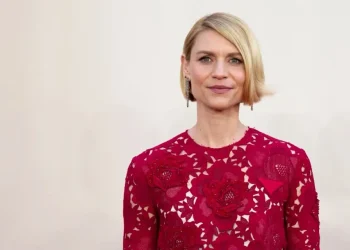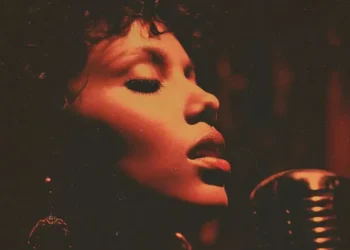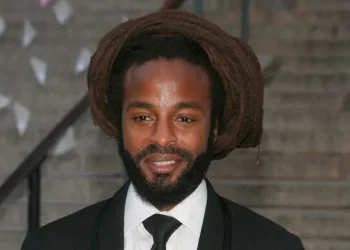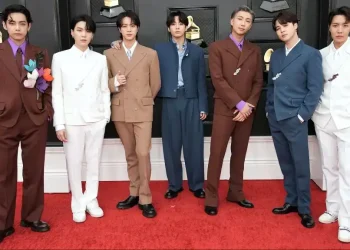2024: The Year Female Desire Went Mainstream
While female desire is far from a new concept, 2024 marked a defining moment when the female sex drive became a dominant force in popular culture. From films and music to literature and TV shows, the representation of women’s pleasure and sexuality surged into the mainstream, openly and without apology.
Female Desire Takes Center Stage in Film
The year closes with the release of Babygirl (Christmas Day in the US, January 10 in the UK), a film that highlights female desire in a way rarely seen in mainstream cinema. Nicole Kidman plays a high-powered businesswoman who becomes sexually submissive to one of her interns. Directed by Dutch filmmaker Halina Reijn, the film tackles “the huge orgasm gap” between men and women, according to Reijn, and offers a fresh perspective on female sexuality.
As Kidman shared at the Venice Film Festival, Babygirl is told through the female gaze, making it unique and liberating. Historically, representations of female sexuality—whether in Edna O’Brien’s banned books, Jane Birkin’s sultry vocals, or Cardi B’s bold lyrics—were often considered exceptions. However, 2024 witnessed female desire break out from the margins and take center stage across multiple mediums.
Music Shifts Focus to Female Pleasure
Several artists led the charge in representing female desire in their music. Chappell Roan, whose monthly Spotify listeners skyrocketed from 1 million to 43 million this year, infuses her lyrics with references to queer relationships and sexual themes, including playful nods to popular vibrator styles. Similarly, Sabrina Carpenter’s album Short n’ Sweet, featuring explicit lyrics like “I’m so f**king horny,” debuted at number one on the Billboard 200.
Tinashe’s Nasty became the soundtrack of summer 2024, with its bold call for matching sexual energy. Meanwhile, FKA Twigs coined the term Eusexua to describe a euphoric sensation that transcends human form, a concept explored in her upcoming album of the same name.
Erotic Content Breaks New Ground
The rise of subscription-based audio erotica app Quinn reflects this cultural shift. Founded five years ago, Quinn’s revenue has grown by 440% over the past two years, partly due to celebrity narrators like Andrew Scott and Victoria Pedretti. Founder Caroline Spiegel believes that female desire, once hidden, is now celebrated openly, reflecting a broader cultural acceptance of women’s sexual needs as part of everyday media consumption.
Notably, A Court of Thorns and Roses by Sarah J. Maas topped Spotify’s list of the most popular audiobooks in 2024, solidifying the growing appeal of romantasy—romantic fantasy novels with explicit, sexual themes. Maas’s books accounted for four of the top 10 audiobooks in the US, earning her the title of Spotify’s global top author.
Television Highlights Female Pleasure
On the small screen, several high-profile shows placed female pleasure at the forefront. Starz’s Three Women, based on Lisa Taddeo’s bestselling book, delved into the intimate lives of three women, each exploring their unique sexual desires. Similarly, Disney+’s adaptation of Jilly Cooper’s Rivals embraced female desire in an 80s setting, blending raunchy, empowering moments with humor and drama.
In Bridgerton season 3, a groundbreaking sex scene between Penelope Featherington and Colin Bridgerton drew global attention for its sensitive, respectful portrayal of consent and intimacy. It stood out not only for its explicitness but also for the way it emphasized mutual respect and female agency.
Breaking Myths About Female Desire
2024 also challenged outdated notions about the age and appearance of women who desire sex. Miranda July’s novel All Fours depicted the sexual journey of a successful mother navigating perimenopause, highlighting the struggles of a woman who still craves passion despite societal pressures. The book resonated with readers, becoming a New York Times bestseller for its honest portrayal of desire later in life.
Elsewhere, Gillian Anderson’s anthology Want gave voice to women’s sexual fantasies, exploring a range of desires from the common to the surreal. Anderson received over 800 anonymous submissions from women worldwide, showing the breadth and diversity of female sexual fantasy and fueling important conversations about sexual power.
A New Era of Female Sexual Pleasure
As the conversation around female sexual pleasure continues to evolve, Dr. Justin Lehmiller, a social psychologist at the Kinsey Institute, notes that the topic of female masturbation and self-pleasure has become less taboo. The growing market for sex toys designed specifically for women’s fulfillment underscores this shift. Lehmiller attributes the change to increased female empowerment in education, economics, and psychology, fields once dominated by men, who often misunderstood women’s sexual experiences. With more women leading these fields, the understanding of female pleasure is more accurate and inclusive than ever before.
Conclusion: Speaking Up and Out
2024 marked a watershed moment in the mainstream recognition of female desire. From films and music to literature and sex-positive tech platforms, women are no longer whispering their desires in the shadows. Instead, they’re speaking out, reclaiming their narratives, and embracing their sexual power in the public eye. This year, female desire was not only acknowledged—it was celebrated.
This article was rewritten by JournosNews.com based on verified reporting from trusted sources. The content has been independently reviewed, fact-checked, and edited for accuracy, neutrality, tone, and global readability in accordance with Google News and AdSense standards.
All opinions, quotes, or statements from contributors, experts, or sourced organizations do not necessarily reflect the views of JournosNews.com. JournosNews.com maintains full editorial independence from any external funders, sponsors, or organizations.
Stay informed with JournosNews.com — your trusted source for verified global reporting and in-depth analysis. Follow us on Google News, BlueSky, and X for real-time updates.












